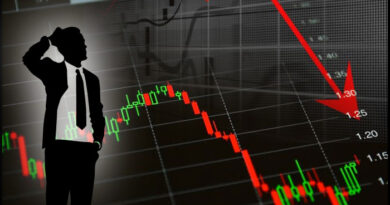Airline shares soar on US plans to relax Covid travel rules
Lufthansa, Air France-KLM and IAG gain as US prepares to open to passengers from EU and UK
- Coronavirus – latest updates
- See all our coronavirus coverage
Last modified on Mon 20 Sep 2021 10.55 EDT
Airline shares have risen on reports that the US plans to relax travel restrictions for vaccinated passengers visiting from the UK and EU.
In the UK, shares in British Airways’ owner IAG soared 11%, making it the top riser on the FTSE 100, while the jet engine maker Rolls-Royce ranked second with shares up more than 5%. Shares in the German airline Lufthansa and Air France-KLM were up about 7%.
The rises followed reports that the Biden administration is poised to end a travel ban for tourists entering from the UK and the EU that was imposed by Donald Trump in March last year.
“IAG shares just took off on reports the US is set to ease restrictions on UK and EU travellers,” said Neil Wilson, the chief market analyst at Markets.com. “The BA owner IAG is a clear winner from this as its transatlantic business has been all but mothballed since the grounding of its jets due to the US policy.”
However, it was a rocky day for markets more broadly, as investor fears mounted about rising inflation, weaker global growth, and the threat of contagion in in China’s property sector from the debt-stricken developer Evergrande.
Europe’s Stoxx 600, a pan-European index of listed companies, was down 1.8% on Monday afternoon. The UK’s FTSE 100 slumped by more than 70 points, or 1%, to 6,891.
Shares in Germany, France and Italy fell by more than 2% and 1.2% in Spain. US markets also opened lower, with the Dow Jones down 1.6%, the S&P 500 1.5% lower and the tech-heavy Nasdaq down 1.8%.
Analysts warned that soaring energy costs and wider inflationary pressures risked upsetting the global economic recovery from lockdown, at a time when growth in several advanced economies was slowing.
Central banks, including the US Federal Reserve and Bank of England, will provide updates this week, with expectations among financial market investors for a gradual retreat from emergency pandemic stimulus at a delicate juncture for the economic recovery from Covid-19.
Walid Koudmani, a market analyst at the online trading firm XTB, said: “Investors will be keeping an eye on the upcoming central bank decisions later this week along with any new developments in the Chinese real estate market which could potentially cause a domino effect.”
The annual rate of UK inflation jumped by the most on record in August from the previous month, reflecting a rapid recovery from last year’s lockdown as well as a sharp jump in food, drink and energy prices.
Wholesale gas and electricity costs have surged to record levels in recent months, pushing several small energy providers into administration and threatening to boil over into a cost of living crisis for British consumers this winter.
It comes as investors sounded the alarm over contagion risks in China’s massively indebted property sector, which could ripple through world markets, after shares in Evergrande plunged on Monday to an 11-year low.
The country’s second-largest real estate developer faces a deadline for debt payments this week, as the firm scrambles to rebuild confidence in the business.
Experts have warned the company, which owes $300bn to contractors, investors and homebuyers, defaulting on its debts could trigger broader issues in the world’s second biggest economy.
Analysts said any downturn in China would have an impact on demand for natural resources, given its status as the word’s largest consumer of many commodities, with worrying parallels to 2015 when fears about Chinese debt troubles prompted a broad-based selloff in financial markets.
Russ Mould, an investment director at the Manchester-based stockbroker AJ Bell, said: “There’s plenty for the market to fret about and those arguing the markets were looking frothy are seeing some of that froth disappear as a brewing crisis in China, surging gas prices in Europe and concerns about stagflation combine to sink stocks.”
Source: Read Full Article


